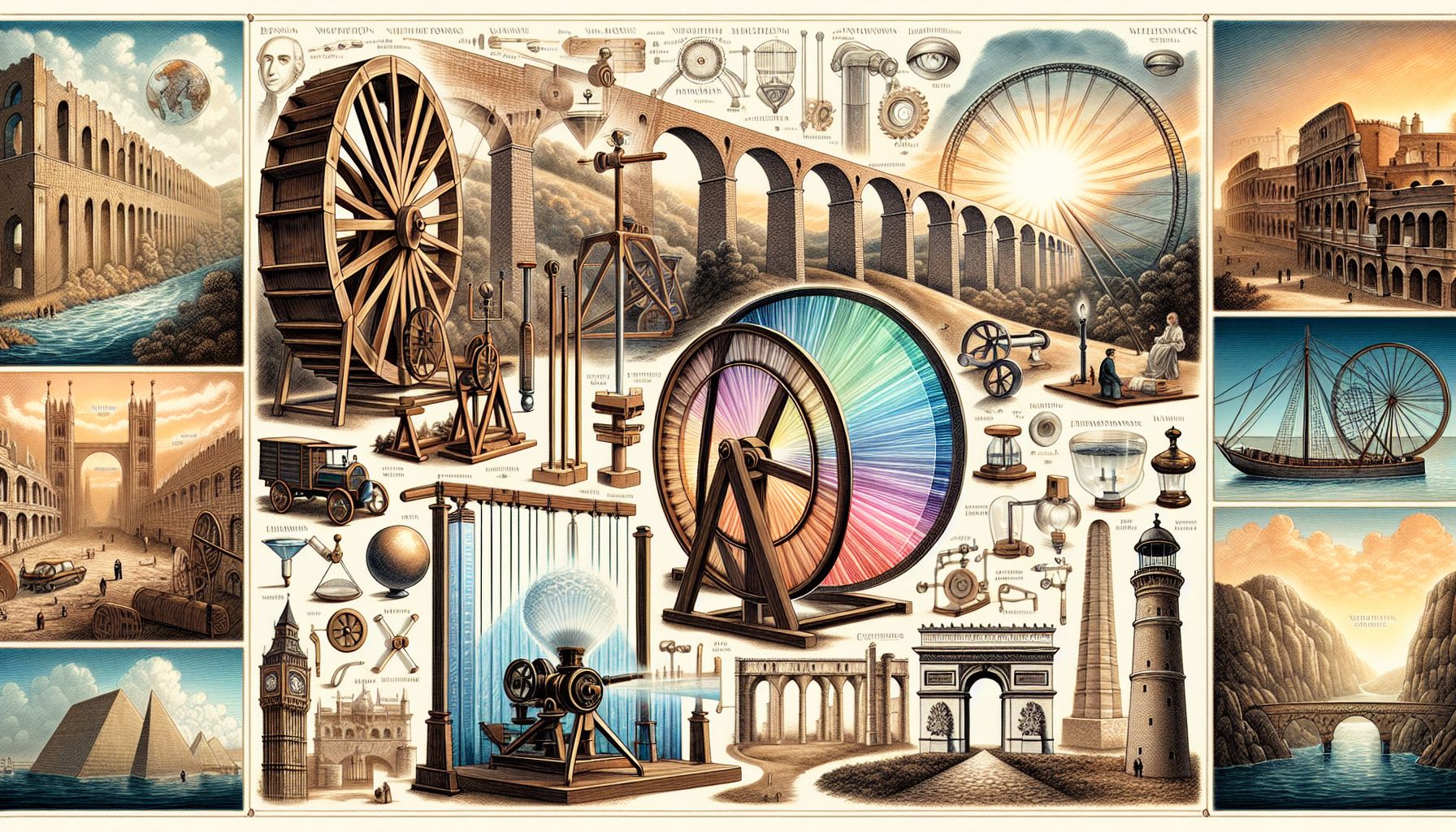📌 Let’s explore the topic in depth and see what insights we can uncover.
⚡ “Think your smartphone is the pinnacle of engineering? Think again – we’re stepping back in time to uncover the incredible historic inventions that shaped the world of modern engineering as we know it.”
Imagine a world without electricity, computers, or even the wheel. Sounds impossible, right? 🧩 As for These, they’re some of the many inventions that have shaped our lives and continue to do so. The field of engineering has seen a revolution of inventions that have dramatically reshaped society, and it’s hard to imagine life without them. In this blog post, we’ll take a time machine back to some of the historic inventions that paved the way for modern engineering. From the ingenious concepts of the ancient engineers, through the scientific revolution, to the digital era, each invention sparked a chain reaction of advancements that have made modern engineering what it is today. So, fasten your seatbelts and get ready for this journey through time 🕰️.
The Wheel: The Foundation of Movement

Blueprints from the Past Shaping Today's Engineering Wonders
The invention of the wheel in the late Neolithic period, around 3500–4000 BC, marked a pivotal moment in human history. Its development was a quantum leap in innovation, setting the stage for significant advancements in transportation and machinery. Far from the rubber-tired wheels we’re familiar with today, the first wheels were likely solid pieces of wood, laboriously carved and smoothed into a circular shape. Despite their primitive design, these early wheels revolutionized human life, making it possible to transport heavy goods over long distances. In addition, the wheel laid the foundation for various mechanical devices, including gears, pulleys, and turbines. In essence, the invention of the wheel was the first step towards the development of various systems and machinery that form the backbone of modern engineering. From our cars to the turbines that generate our electricity, we have the wheel to thank for it all.
Steam Engine: The Powerhouse of the Industrial Revolution
Fast forward a few millennia to the 18th century, and we arrive at another transformative invention: the steam engine. Invented by James Watt, the steam engine turned the wheels of the Industrial Revolution, ushering in an era of rapid industrial and economic growth. Before the steam engine, industries relied on the power of humans and animals for production. The steam engine changed all that, offering an unprecedented source of power that could drive machinery, transport goods, and even propel vehicles. It was a game changer, paving the way for the mass production and distribution of goods. Moreover, the steam engine set the stage for the development of thermodynamics, a fundamental branch of engineering. The principles of thermodynamics discovered during the design and improvement of steam engines are essential in today’s engineering fields, particularly mechanical and chemical engineering.
Electricity: The Spark that Lit the World
The discovery and harnessing of electricity in the 19th century was another milestone in the history of engineering. From Benjamin Franklin’s kite experiment to Thomas Edison’s electric bulb, the journey towards understanding and utilizing electricity brought about a revolution in how we live and work. Electricity’s impact on modern life cannot be overstated. It powers our homes, fuels our industries, and forms the backbone of our digital world. Without electricity, there would be no electric motors, no telecommunication, no computers, and no internet. Indeed, electricity’s discovery was a pivotal moment for engineering, leading to the birth of electrical engineering – a discipline that has given us countless innovations, including household appliances, electric vehicles, and renewable energy technologies.
Computer: The Digital Revolution
The development of the computer in the 20th century marked the start of the digital revolution. The first computers were room-sized machines, created to perform complex calculations during World War II. Over time, they evolved into the compact, powerful devices we have today. The computer has fundamentally changed the way we work, learn, communicate, and entertain ourselves. Moreover, it has revolutionized engineering, enabling the design and simulation of complex systems, from skyscrapers and airplanes to computer networks and artificial organs. In addition, computers have given birth to a new branch of engineering: computer engineering. This field has led to the creation of many technologies we take for granted today, such as the internet, smartphones, and artificial intelligence.
🧭 Conclusion
The wheel, steam engine, electricity, and computer – these are just a few of the historic inventions that have dramatically reshaped our world and paved the way for modern engineering. Each of these inventions sparked a chain reaction of advancements, leading to the diverse, dynamic field of engineering we know today. As we marvel at these historic inventions, it’s exciting to imagine what the future might hold. If the past is any indication, we can expect that the field of engineering will continue to evolve, bringing about new inventions that will further transform our world. So, the next time you scroll through your smartphone, flick on a light switch, or drive your car, remember the historic inventions that made it all possible. And who knows? You might just be inspired to become a part of the next big breakthrough in engineering.
🚀 Curious about the future? Stick around for more discoveries ahead!
